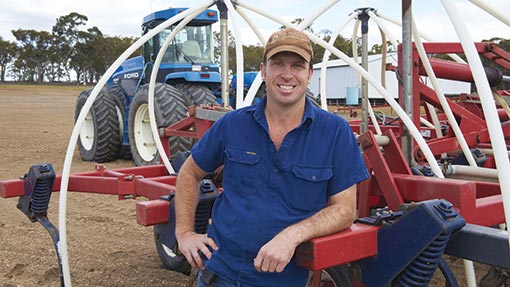Farmer Focus: Local farm shows tend to disappoint

This season’s local agricultural shows or field days, as they are know in Australia, are coming to an end, so I thought I might reflect on how relevant they are in today’s agriculture and what might be their future.
Twenty years ago there were twice as many farmers and most machinery purchase decisions were researched and made at the field days. I remember the days when bankers were the busiest people at the field days as farmers lined up to organise finance for the latest piece of machinery they had just purchased.
These days, most of the research is done online and field days are more of an excuse to kick a few tyres and have a day off while pretending to work. There are more drill bit sales people and magic fruit slicers at the field days than there are machines on show.
Read more from all our Farmer Focus writers
In 2010, I attended the Cereals event in the UK. To say I was impressed would be something of an understatement, not just because there was a pig on the spit and pints at lunchtime, but also due to the professional nature of the event.
I remember sitting on the hay bales while watching a crop being sprayed, looking at the latest varieties of wheat, barley and canola and talking to the breeders, with not a magic knife sharpener to be seen.
Field days in Australia will have to change and become more like the Cereals event. Instead of looking at a shiny air seeder, I want to see what its establishment is like. I want to see the boom spray travelling at 25km/hour through a crop and see the effectiveness of the nozzle setup. Most of all, I’d like to have a pint at lunchtime, just not a warm one that comes out of a cardboard box!
Just like the newspaper trade, agriculture is going to have to change the way it communicates. When you are spending in excess of US$500,000 (£270,000) on a piece of machinery, it’s going to take more than a glossy pamphlet and a big smile to get me across the line.
Rob Warburton farms 3,000ha with his wife Jen and two daughters in Kojonup, below Perth, in Western Australia. Cropping includes wheat, barley and oilseed rape. Wildflower seed is grown for retail. Merino sheep are reared for wool and meat.

